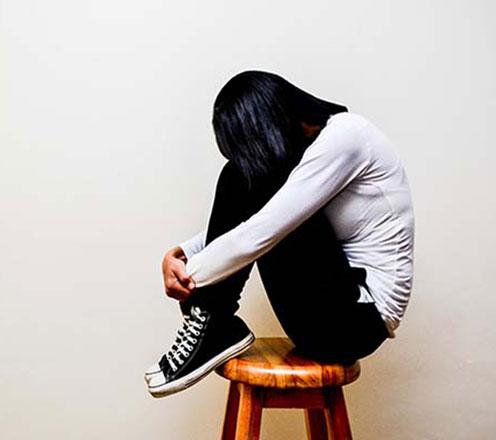You are here
Discrimination from society may cause adolescents to veer off course
By Reuters - Sep 09,2018 - Last updated at Sep 09,2018

Photo courtesy of healthline.com
Adolescents who worry about discrimination in society may be more likely to drink, smoke or experiment with drugs than teens who do not have these concerns, a US study suggests.
“We didn’t previously know whether perceptions that discrimination is increasing in the larger society is a significant source of stress that is associated with risk of behavioural health problems,” said lead author Adam Leventhal, director of the Health, Emotion, and Addiction Laboratory at the University of Southern California in Los Angeles.
“This is a timely question given that the sociopolitical climate has recently intensified in the US due to social policies perceived by many to be discriminatory, including proposals to construct a US-Mexico border wall to deter undocumented immigration, attempts to repeal the Affordable Care Act that provides health insurance to millions of low-income Americans, and travel bans to prohibit entry into the US from several countries with religious minority populations,” Leventhal said by e-mail.
For the study, published in JAMA Pediatrics, researchers surveyed 2,572 high school students once in eleventh grade and again a year later to see how often they experienced stress, worry or concern regarding “increasing hostility and discrimination of people because of their race, ethnicity, sexual orientation/identity, immigrant status, religion, or disability status in society”.
Researchers scored students’ reported level of stress, worry, and concern on a scale from 0 for “none at all” to 4 for “extremely”.
Overall, students’ average composite scores for all three feelings about discrimination increased from 1.56 in 2016, when they were in eleventh grade, to 1.71 the following year.
As kids’ scores rose higher above the average, the greater their odds of risky behaviour a year later. Each one-unit standard deviation increase above the average scores in 2016 was associated with 77 per cent higher odds that students used cigarettes in 2017, 13 per cent higher likelihood that they used marijuana, and 11 per cent greater odds that they used alcohol.
In addition, each one-unit increase above average scores in 2016 was associated with 11 per cent higher odds that students would report symptoms of depression in 2017 and 12 per cent greater likelihood that they would experience symptoms of attention deficit hyperactivity disorder.
These associations were not necessarily related to whether teens directly experienced discrimination. The study asked about their feelings related to their perception of how much discrimination exists in society.
But the effects did appear more pronounced for students of colour at the 10 Los Angeles high schools where the surveys were conducted.
For example, each one-unit increase in composite scores for concern about discrimination was associated with almost tripled odds that African American students would smoke, and 30 per cent greater likelihood that Hispanic teens would smoke. White students were 23 per cent more likely to smoke, but this difference was not statistically meaningful and might have been due to chance.
The proportion of students reporting feeling “very or extremely concerned” about discrimination also increased from 42 per cent in the first survey in 2016 to 45 per cent the following year.
The study was not a controlled experiment designed to prove whether or how perceptions of discrimination might directly impact teens’ behavioural health. It is also possible that teens’ experiences in Los Angeles might not reflect what would happen elsewhere in the US
But the results still suggest that parents need to talk about discrimination with their kids, said Dr Nia Heard-Garris of the Ann and Robert H. Lurie Children’s Hospital of Chicago.
“Even if parents think discrimination is not applicable to their teens or families, having a conversation about discrimination, even about the experiences of others, might be a way to start the conversation and then discuss ways to address discrimination personally or societally,” Heard-Garris, author of an accompanying editorial, said by e-mail.
“Also, there may be a role for the paediatrician to help these families start these conversations, as some of the recent exposure to discrimination on national scale has been unavoidable for many teens,” Heard-Garris added.
Related Articles
Teens who spend lots of time surfing the web, playing games and chatting with friends on smartphones and tablets may be more likely to devel
On days when parents feel stressed or depressed, kids are less likely to get homemade food for dinner, a US study suggests. Beyond just
One in five teens are victims of bullying, and these adolescents are about twice as likely to bring guns and knives to school than peers who


















